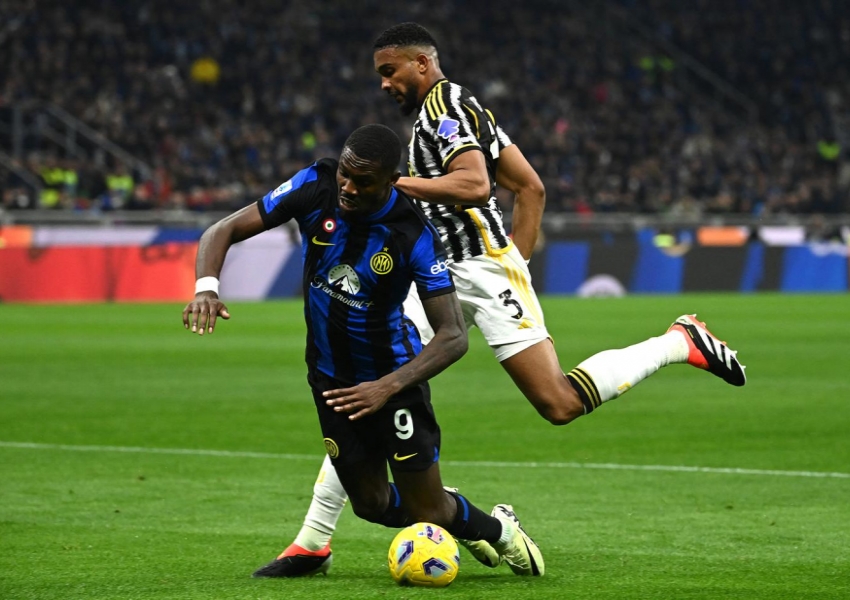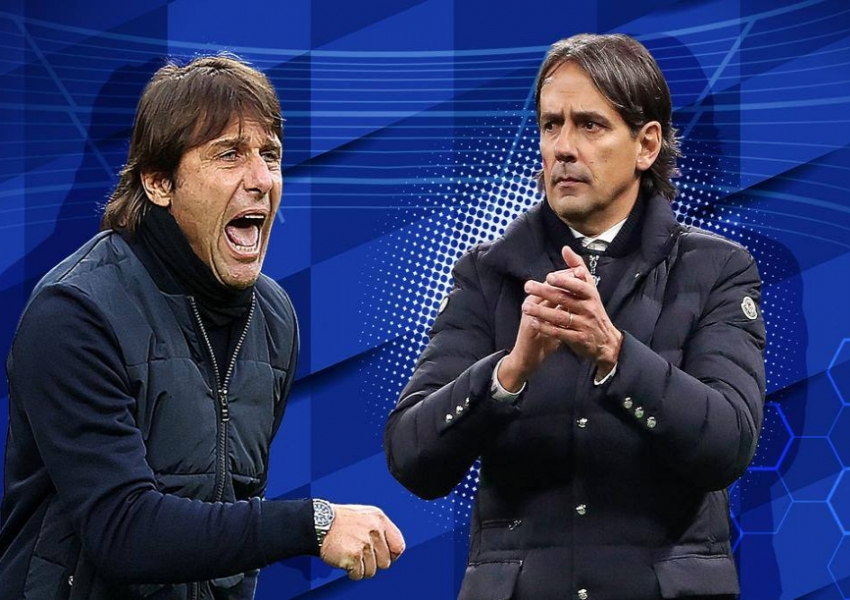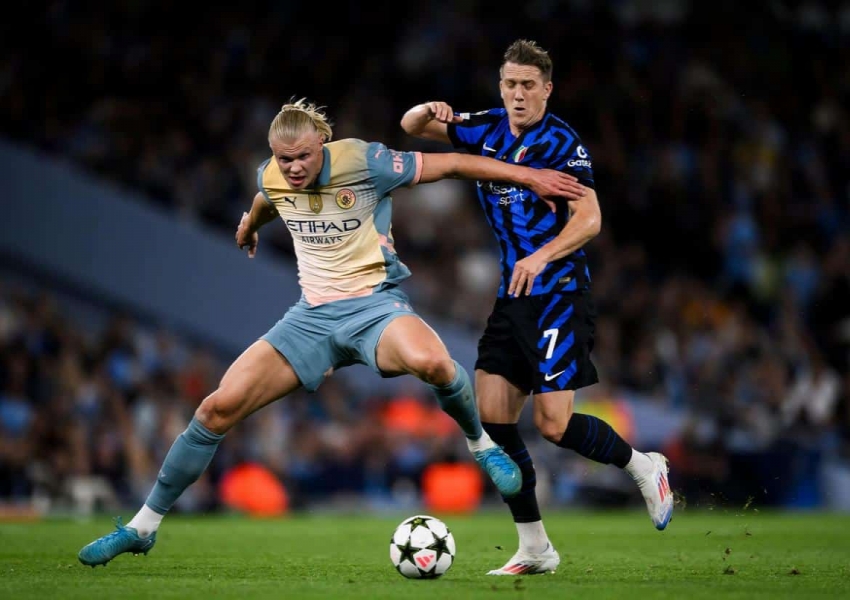Inter's Grueling Three-Week Stretch Approaches as Rotation Strategy Unveiled, With Three European Veterans Key to Inzaghi’s Plans
Inter Milan are bracing for what has been dubbed by Sky Italia as “the longest and most grueling three weeks of the season.” The Nerazzurri are set to embark on a punishing run of fixtures, featuring a lineup of formidable opponents: AS Roma on October 20th (away), Young Boys on October 23rd (away), Juventus on October 27th (home), Empoli on October 30th (away), Venezia on November 3rd (home), Arsenal on November 6th (home), and Napoli on November 10th (home). The difficulty of this schedule is defined by three major challenges.

First, the pace and intensity of Champions League matches far exceed those of Serie A, leading to higher physical and mental exhaustion. For Inter, the difficulty is exacerbated by the fact that each European clash is closely followed by a critical domestic fixture. Serie A scheduling has historically been unfavorable to Italian clubs in European competitions, but the harshness of this arrangement is particularly pronounced for Inter.

Second, the so-called “easier” matches against lower-tier Serie A sides, like Empoli and Venezia, are deceptive, especially since they take place on the road. Playing away against teams fighting for survival often proves to be far from straightforward, as picking up three points in these contests is rarely as simple as it appears on paper. The travel and hostile environments add to the overall challenge, making these matches crucial yet demanding.

Finally, with the exception of Venezia, most of the teams in this stretch are either in strong form or experiencing a resurgence. The likes of Juventus and Napoli are always challenging, but even Roma, under the leadership of José Mourinho, and Arsenal, one of Europe’s most tactically refined squads, will make life difficult. Additionally, matches against sides managed by influential coaches like Thiago Motta and Antonio Conte, both known for their tactical acumen, could influence Serie A standings and public perception of Inter’s title prospects.
To tackle these challenges, rotation—"turnover" as it is frequently described in Italian football circles—will be crucial. La Gazzetta dello Sport has published a detailed piece outlining Inter’s rotation strategy, highlighting how Simone Inzaghi plans to navigate this daunting period. Drawing from Inter’s recent double-duty seasons and reflecting on some of last season's approaches, the article provides insight into how the team may rotate its squad.
The foundation of Inzaghi's strategy rests on two core principles. The first is straightforward: deploy the strongest possible starting eleven in the biggest games. Taking the next week as an example, La Gazzetta expects that Inzaghi will field his best players for the showdown against Roma. Recently returned from injury, Nicolò Barella is likely to start, along with Henrikh Mkhitaryan, who struggled for form early in the season, and Lautaro Martínez, fresh from international duty. The same principle will apply when Inter face Juventus in one of Serie A’s most storied fixtures. By contrast, the midweek clash against Young Boys will see a more heavily rotated squad. Not only is this fixture on a tight turnaround—just 72 hours after the Roma game—but the quality gap between Inter and their Swiss opponents makes rotation less risky compared to the must-win Juventus match.
The second principle marks a shift from last season: a preference for utilizing players with substantial European experience. This approach underpins Inzaghi's decision-making, particularly in key Champions League matches. Three names stand out: Mehdi Taremi, Piotr Zieliński, and Denzel Dumfries. Taremi’s pedigree in European competitions is well-documented. Unlike many players whose domestic form outshines their European performances, Taremi has proven to be more prolific in the Champions League and Europa League. Under Inzaghi’s guidance, he has played every minute of Inter’s first two Champions League fixtures, notching a goal and two assists to reward his manager’s faith.
Dumfries and Zieliński, too, have the kind of European pedigree that justifies their significant roles in the rotation. Dumfries has competed in European club tournaments regularly, and his international experience with the Netherlands means he is familiar with top-level European opponents. Similarly, Zieliński’s background, having faced elite teams across Europe with both Napoli and the Polish national team, adds a layer of security to Inter’s midfield in high-stakes matches. The contrast in playing time between domestic and European fixtures is striking: as of the latest data, Taremi, Dumfries, and Zieliński rank 14th, 16th, and 19th in Serie A minutes for Inter. In the Champions League, however, they rank 3rd, 8th, and 5th, respectively. This discrepancy highlights their strategic importance in Europe.
One player whose usage remains a significant talking point is Piotr Zieliński. Initially expected to be out for two weeks due to injury, reports suggest that his recovery is progressing better than anticipated. There is even speculation he could feature against Young Boys, a development that would bolster Inter’s midfield options considerably. The rationale behind relying on European veterans is clear: the Champions League rewards experience. Chelsea’s journey to their first Champions League title is a case in point. Despite several failed campaigns with star players like John Terry, Frank Lampard, and Didier Drogba in their physical primes, Chelsea succeeded when those same players were older but wiser, underlining the critical role of experience in Europe.
The contrast between veterans and younger, high-energy players like Barella is worth noting. Although Barella has never lacked ability or determination, his early Champions League campaigns were marked by costly mistakes, a testament to his initial lack of European experience. Thus, Inzaghi’s emphasis on experienced players is rooted in sound logic. The decision to limit the Champions League minutes of players like Davide Frattesi, who ranks 18th in European playing time for Inter this season, aligns with this philosophy.
Overall, Inter’s rotation strategy will also be influenced by the physical condition of key players. Players like Federico Dimarco and Alessandro Bastoni, whose stamina has been a concern, will need careful management. But despite these constraints, Inzaghi appears committed to adhering to his two guiding principles. Compared to last season, there is a noticeable evolution in how Inzaghi handles his squad, suggesting lessons learned and strategic adjustments. This refined approach could be exactly what Inter need to survive the most difficult three-week stretch of their campaign.
Copyright Statement:
Author: mrfootballer
Source: Mrfootballer
The copyright of this article belongs to the author. Reproduction is not allowed without permission.
Recommended Blog
- EFL Cup Round of 16: Chelsea’s Attack Firing on All Cylinders, Man United Fighting to Keep Cup Hopes Alive Under New Management
- Inter Coach Inzaghi Begins Defensive Overhaul: Boosting Sommer's Confidence and Addressing Last-Minute Lapses
- Inter's Dual-Faced Wingback Denzel Dumfries: Offensive Strengths Paired with Defensive Weaknesses
- Serie A Round 10: AC Milan and Bologna Recover, Napoli Set for Another Major Test
- Inter's Costly Lesson in Defensive Fragility: The “Perilous Trio” Becomes Juventus’ Advantage
- Allsvenskan Round 28: Malmö One Win Away from the Title, Västerås Fights for Survival
- Inter’s Deep-Lying Midfield Dilemma: The Role of the Referee and Juve’s Dribbling Threats
- Inter Milan’s Looming Executive Overhaul: Behind-the-Scenes Rules and Six Years of Remarkable Service
- La Liga Matchday 11: Post-Messi and Ronaldo Era’s Strongest El Clásico Approaches, and How Much Will Girona Pay for Their Champions League Efforts?
- Inter Milan's Strategy to Cope with Left-Side Shortage: Shifting Resources from Right to Left
Hot Blog
- English Media: Manchester United Will Win Premier League Title in 2028! History Will Repeat Itself, Two Teams Serve as Inspirations
- 0-2 Double Defeat! China National Team Stuck at 6 Points: No More Direct World Cup Hopes, Two Crucial Matches Ahead
- 4 AM Showdown: Barcelona's Revenge Match! Win = 3-Point Lead Over Real Madrid, Key Players Rested
- China National Football Team Drops 13.6 Points, Slips to 94th in FIFA Rankings: Syria Overtakes, New 9-Year Low
- 0-0 Draw! Japan 12 Shots, 2 Missed One-on-Ones: 8 Matches, 20 Points, Group Winner, Saudi Arabia Stuck at 10 Points in 3rd
- 4-1, Double Win Over Brazil! Argentina Celebrates: World Cup Qualification Secured, 4th Team Globally to Qualify
- Real Madrid Got Lazy: 7 Kilometers Less Running in UCL! Two Superstar Spectators While Barça Outruns Them All
- United Go for Glory: Unbeaten in 10, Fueled by Kobbie Mainoo’s Return, Red Devils Eye Europa League Crown
- Champions League Classic: Barça’s Midfield Maestro Worshipped by Thousands After 11.5KM Marathon
- Champions League Semifinal Odds: Barça at 99%, Real Madrid’s Hopes Dwindle to 6%, PSG Cruise Ahead